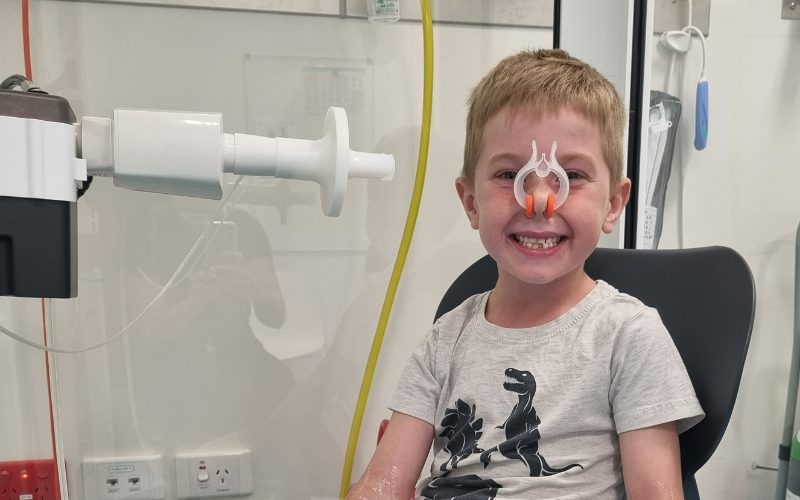Search
Showing results for "lung disease preterm"

Preterm researchers Dr Shannon Simpson (left) and Professor Jane Pillow (right) with Tony Sparks WA chairperson Amber Bates.

Researchers will fit nearly 500 preterm babies with tiny eye masks and earplugs for the study.
Lung inflammation and impaired alveolarization precede bronchopulmonary dysplasia (BPD). Glucocorticoids are anti-inflammatory and reduce ventilator requirements in preterm infants. However, high-dose glucocorticoids inhibit alveolarization. The effect of glucocorticoids on lung function and structure in preterm newborns exposed to antenatal inflammation is unknown. We hypothesise that postnatal low-dose dexamethasone reduces ventilator requirements, prevents inflammation and BPD-like lung pathology, following antenatal inflammation.

A new study to determine if it’s safe for children who were born preterm to attend day care officially commenced this month.
A link between chronic lung disease and low Vitamin D levels is the focus of a new study just started by the Telethon Institute for Child Health Research.
The Kids research has uncovered likely mechanisms for the link between arsenic in drinking water and higher risk of developing chronic lung disease.

Gene modifiers of cystic fibrosis lung disease: A systematic review Background: Lung disease is the major source of morbidity and mortality in cystic
Surfactant, which was first identified in the 1920s, is pivotal to lower the surface tension in alveoli of the lungs and helps to lower the work of breathing and prevents atelectasis. Surfactant proteins, such as surfactant protein B and surfactant protein C, contribute to function and stability of surfactant film.
Alexander Larcombe BScEnv (Hons) PhD Honorary Research Fellow Honorary Research Fellow Associate Professor Alexander Larcombe began work at The Kids
Ventilated preterm infant lungs are vulnerable to overdistension and underinflation.
